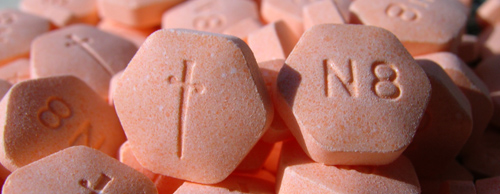Is Medicaid (MassHealth) Preventing the Poor from Breaking out of Addiction?

Lawrence Harmon of The Boston Globe had a very interesting article that highlights the intersection of medicine and public policy. The issue was the debate whether MassHealth, our state’s Medicaid program, should move to pay for Suboxone versus methodone for opioid-addicted patients (for example heroin addicts). The article examines the growing medical evidence of the clinical effectiveness of Suboxone and the benefits versus commonly utilized methadone. I suggest you read the whole article for yourself to get the full medical discussion of the upsides of Suboxone versus methodone, but here are the sections I found most interesting on the public policy front:
In 2007, MassHealth paid $325 million to treat 18,000 low-income addicts with either methadone or Suboxone, according to a 2009 legislative report. Of that amount, $276 million was spent on methadone programs for 14,000 addicts. The average cost per subsidized patient was $19,799 for methadone and $11,820 for Suboxone.
The state Department of Public Health spent $6 million last year on methadone treatment for addicts whose insurance policies won’t cover the drug. By contrast, the department provided only $1.5 million for Suboxone programs in 14 community health centers across the state.
So one might think that state public health officials would vigorously embrace the newer drug. They don’t. Or that MassHealth — the government insurance plan for low-income residents — would give its recipients access to the safest formulation of Suboxone. It doesn’t. Or that doctors, especially psychiatrists, would be lining up to learn more about the drug. They aren’t.
Consider that each of the 33,000 physicians and many of the 6,500 nurse practitioners in Massachusetts have authority to prescribe powerful narcotics that can lead to addiction. Yet only about 900 physicians in Massachusetts have taken the required course and sought the federal waiver needed to prescribe Suboxone, and only about 400 appear on a physician locator list — less than 2 percent of the total. And only about half of them are accepting new patients. The state spends liberally on methadone and sparingly on Suboxone for low-income addicts. Meanwhile, about 600 people die annually in Massachusetts of narcotic overdoses.
Those who complete the training can prescribe the drug to no more than 30 patients in the first year. After that, they must observe a patient cap of 100. Such caps and shortages of prescribers create opportunities for so-called “script docs’’ who insist on high cash payments for prescribing Suboxone, even though the drug is covered by most insurers.
… Massachusetts is one of only five states where the product [a Suboxone film] is not available to Medicaid patients. Private insurance companies here cover the film.
The article not only lays out the medical arguments for Suboxone, but also the societal damages that can come from the status quo system of over-reliance on methadone. Anecdotally, I have heard of addicts on MassHealth paying for Suboxone out-of-pocket because they see the value for themselves over the harsher methodone treatments that would otherwise be covered.
Suboxone is not a silver bullet, but it is a step forward, and highlights the downsides of a government run program that– in this case—is denying a better treatment to the poorest in our society and who statistically are more likely to be in need of the treatment.
Pioneer has blogged before on MassHealth/Medicaid issues. Here and here are two examples.

